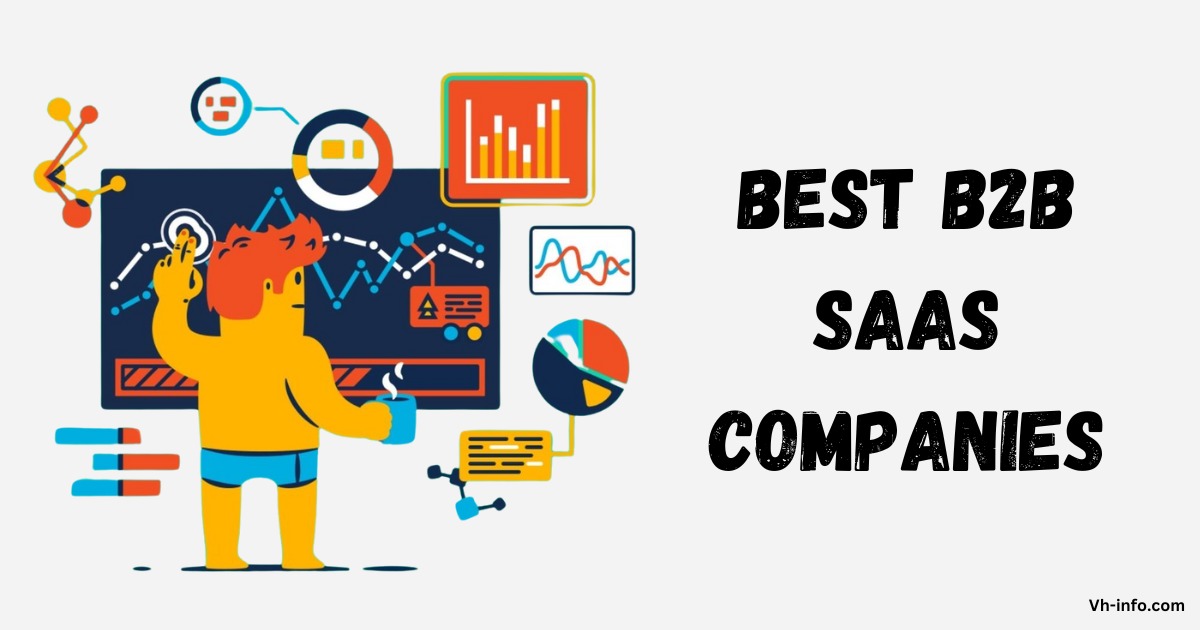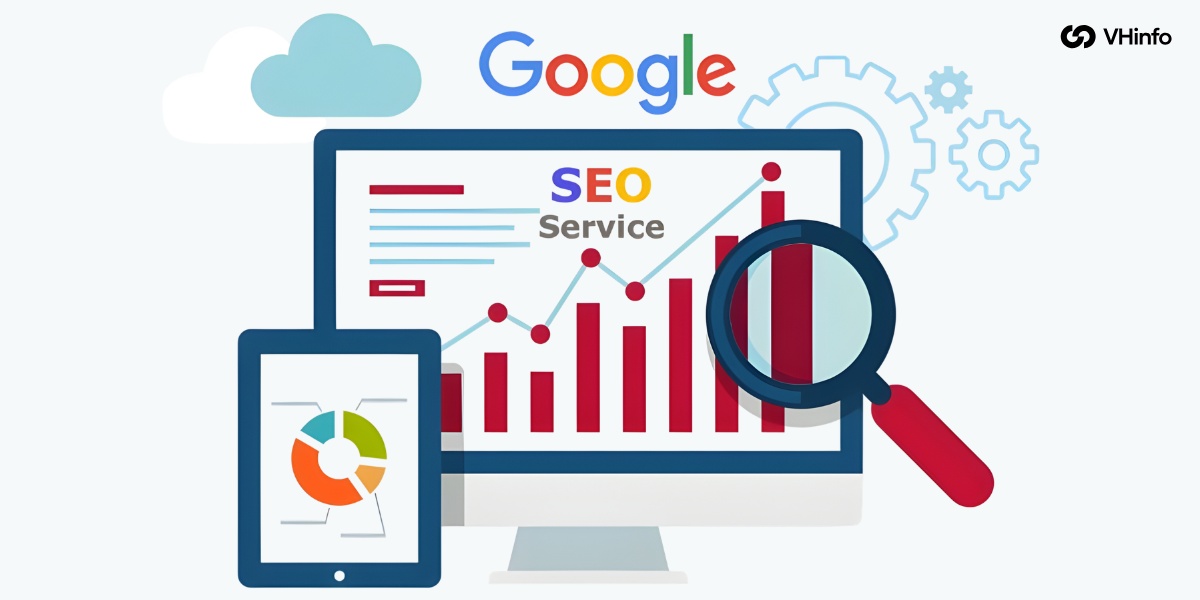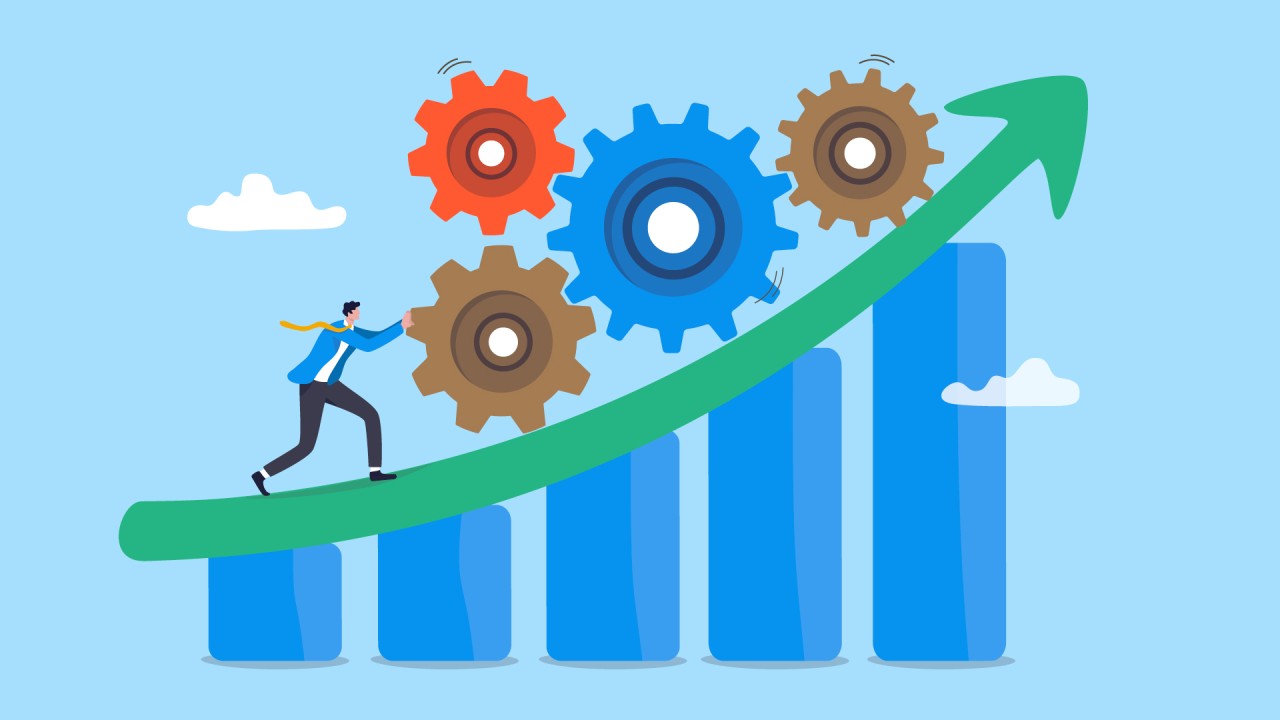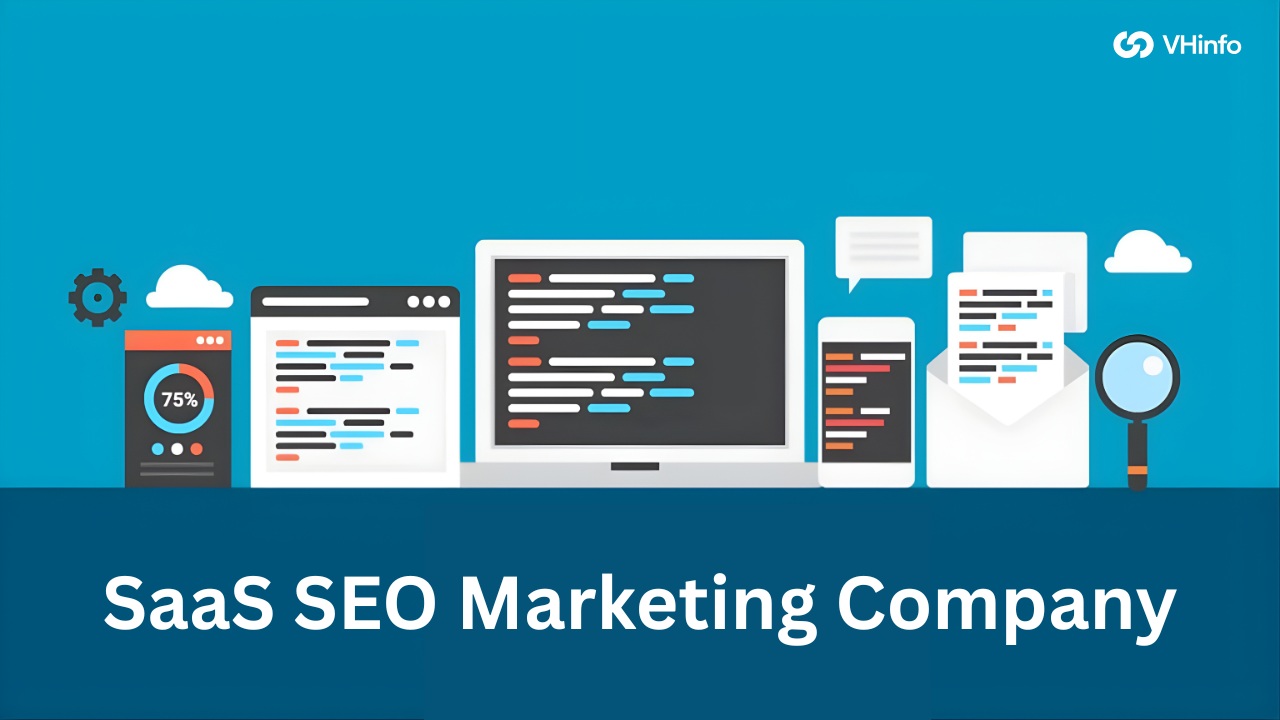In the rapidly evolving world of software as a service (SaaS), business-to-business (B2B) SaaS companies have emerged as game-changers, revolutionizing how businesses operate and grow.
As we navigate through 2024, the B2B SaaS market continues to expand, with innovative solutions and cutting-edge technologies transforming industries across the globe.
At VH Info, we understand the importance of staying ahead in the competitive B2B SaaS landscape. Our mission is to provide you with actionable insights and strategies to help your business thrive.
In this comprehensive guide, we’ll dive deep into the world of B2B SaaS, exploring its definition, advantages, marketing strategies, and the top companies dominating the market.
What is B2B SaaS?
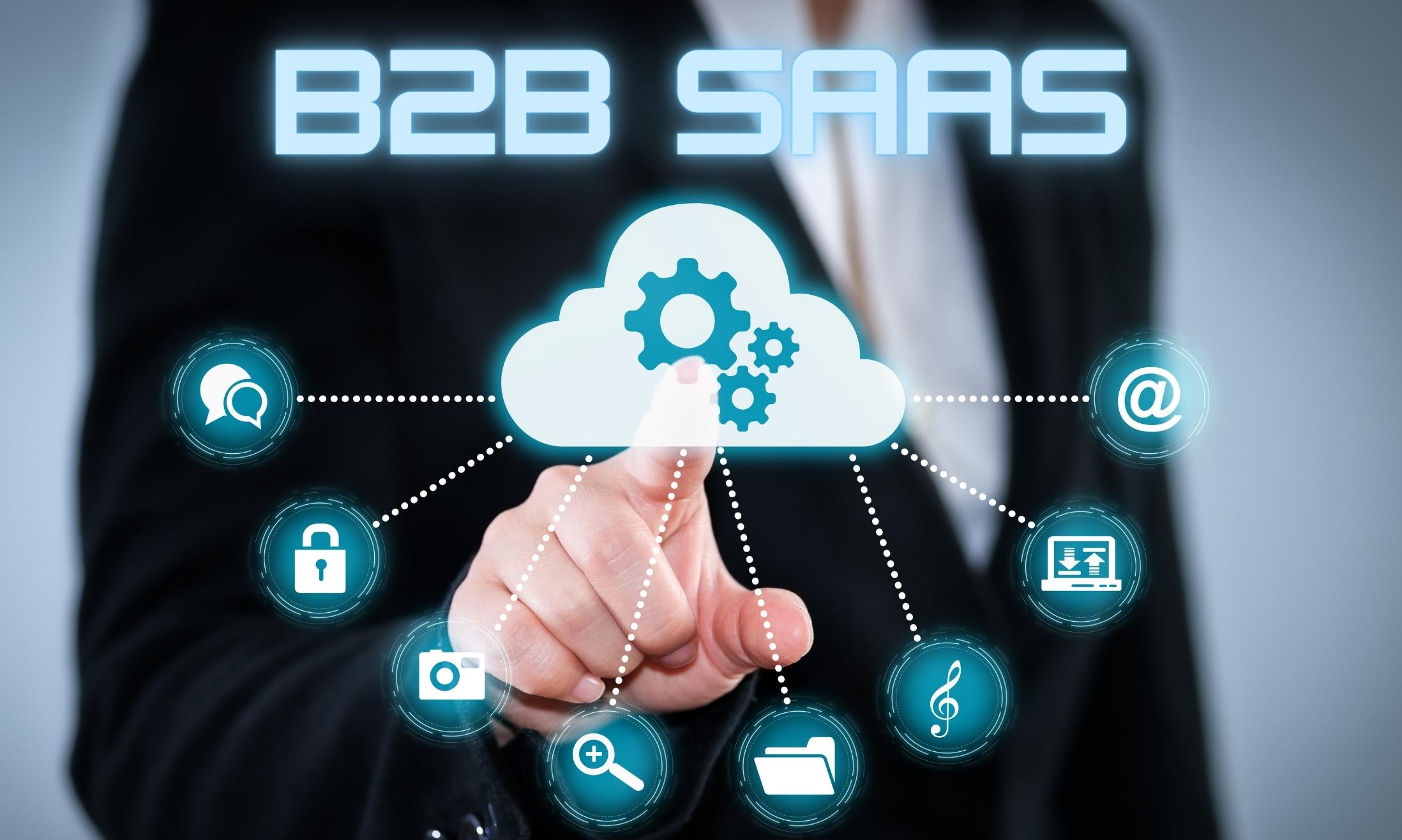
B2B SaaS, or business-to-business software as a service, refers to cloud-based software solutions designed specifically for businesses.
These B2B SaaS products can include accounting, office productivity, customer relationship management (CRM), and other work-related tasks.
Companies can subscribe to these services regularly, usually monthly or yearly, making it a cost-effective and scalable solution for businesses of all sizes.
How Does B2B SaaS Marketing Work?
B2B SaaS marketing focuses on attracting, engaging, and retaining business customers. It involves a combination of inbound marketing strategies, such as content marketing, search engine optimization (SEO), and social media marketing, to generate leads and nurture them through the sales funnel. The goal is to educate potential customers about the value of the SaaS product, demonstrate its benefits, and ultimately convert them into paying subscribers.
Advantages of B2B SaaS Products in E-Commerce
B2B SaaS solutions offer numerous advantages for e-commerce businesses.
They provide a centralized platform for managing various aspects of the business, from inventory management and order processing to customer relationship management (CRM) and marketing automation. Additionally, integrating CRM with contact center software strengthens B2B communication, enabling seamless customer interactions and improved service delivery.
SaaS Billing Software for Subscription Management
When it comes to SaaS billing, businesses need a solution that can handle the complexities of recurring billing, usage-based pricing, and subscription management. UniBee’s SaaS billing software is designed to address these pain points directly, offering an all-in-one platform that integrates with existing tools and automates repetitive tasks.
Disadvantages of B2B SaaS Products
While B2B SaaS offers many benefits, there are also some potential drawbacks to consider.
One concern is data security, as businesses must trust the SaaS provider with their sensitive information. Additionally, customization options may be limited compared to on-premise software, and businesses may face challenges integrating SaaS solutions with their existing systems.
Differences between B2B SaaS and B2C SaaS
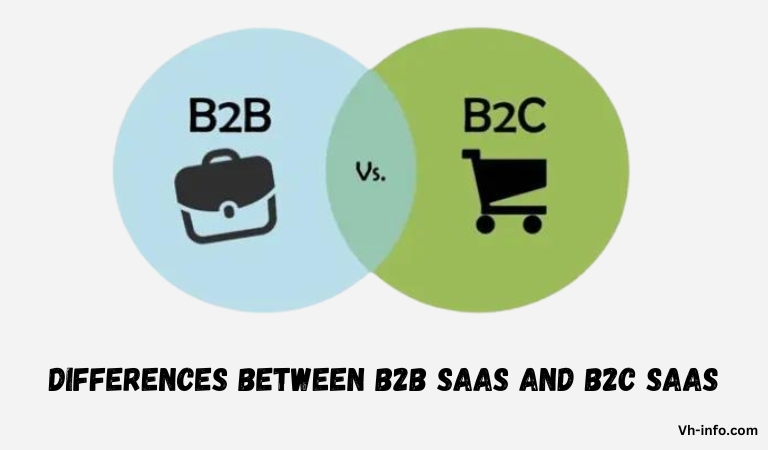
B2B SaaS and B2C SaaS cater to different target audiences and have distinct characteristics.
B2B SaaS focuses on providing solutions for businesses, often with more complex features and higher price points.
In contrast, B2C SaaS targets individual consumers and tends to have simpler user interfaces and lower subscription fees.
Why B2B SaaS is a Better Opportunity Than B2C SaaS?
B2B SaaS presents a more lucrative opportunity compared to B2C SaaS for several reasons.
- Firstly, businesses are willing to pay more for software that solves their specific problems and improves their bottom line.
- Secondly, B2B SaaS often involves longer-term contracts and higher customer lifetime values.
Additionally, the B2B market is vast, with numerous industries and niches to target.
How to Follow the SaaS Business Model?
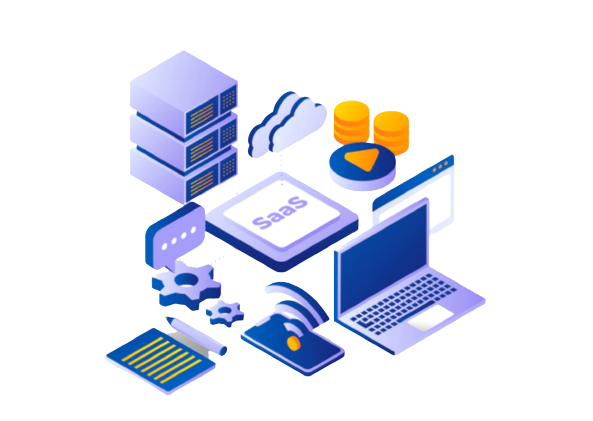
To succeed as a SaaS company, it’s essential to follow a well-defined business model.
Here are the key stages for most SaaS startups:
Setup
The setup phase involves developing the software product, defining the target market, and establishing pricing and subscription plans. It’s important to create a user-friendly and reliable product that solves a specific problem for your target audience.
Growth
Once the product is launched, the focus shifts to customer acquisition and growth. This involves implementing effective marketing strategies, such as SEO, content marketing, and paid advertising, to attract potential customers. Building partnerships and integrations with other SaaS products can also help expand your reach.
Stabilization
As the customer base grows, the emphasis moves towards retention and expansion. Providing excellent customer support, continuously improving the product based on user feedback, and offering additional features or upgrades are key to maintaining customer satisfaction and reducing churn.
How Do You Do B2B SaaS Marketing?
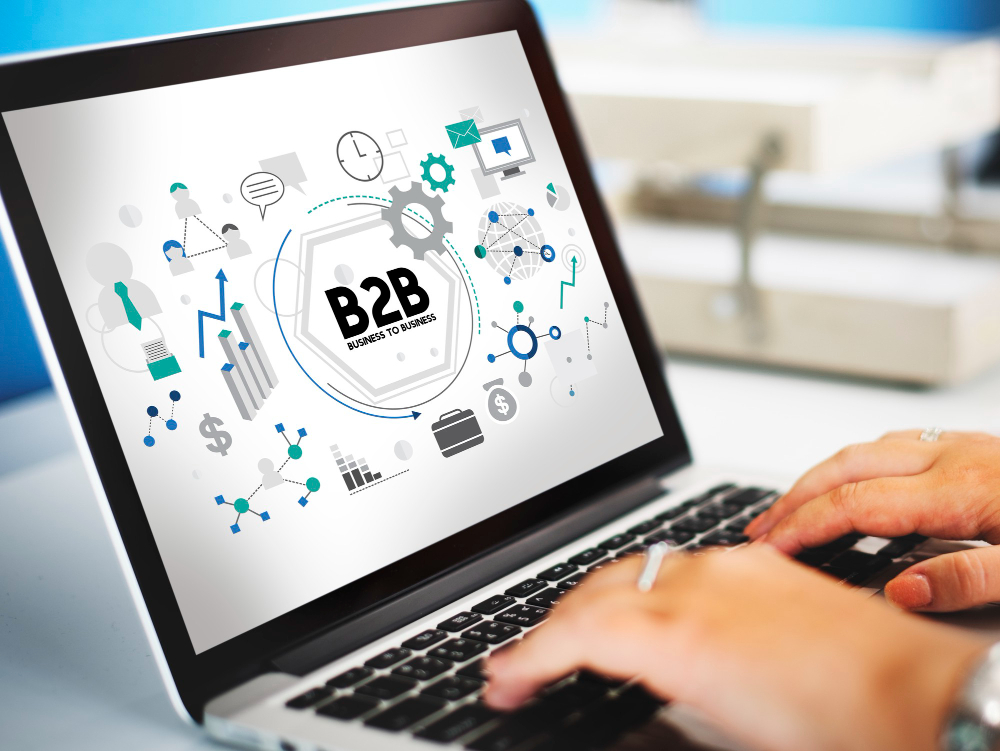
B2B SaaS marketing requires a multi-faceted approach to reach and engage potential customers effectively.
Here are some essential strategies:
- SEO: Search engine optimization is important for improving your website’s visibility in search engine results pages (SERPs).
- Paid Ads: Paid advertising, such as Google Ads or social media ads, can help you reach your target audience quickly and drive targeted traffic to your website.
- Email Marketing: Email marketing is a powerful tool for nurturing leads and engaging existing customers.
- Social Media Marketing: Social media platforms like LinkedIn, Twitter, and Facebook provide opportunities to connect with your target audience, share valuable content, and establish thought leadership.
Top 20 Best B2B SaaS Companies
Now, let’s take a look at some of the top B2B SaaS companies leading the way in 2024:

Google offers a suite of products, including Google Workspace (formerly G Suite), which provides businesses with tools for email, document creation, file storage, and video conferencing.
HubSpot

HubSpot is an all-in-one marketing, sales, and customer service platform that helps businesses attract, engage, and delight customers. Their suite of tools includes a CRM, marketing automation, and content management system.
Slack

Slack is a team collaboration tool that enables real-time communication, file sharing, and integration with other SaaS applications, making it easier for teams to work together efficiently.
Xero

Xero is a cloud-based accounting software designed for small businesses, offering features like invoicing, expense tracking, and financial reporting.
Workday

Workday provides enterprise-level human capital management (HCM) and financial management solutions, helping businesses streamline their HR and finance processes.
Atlassian
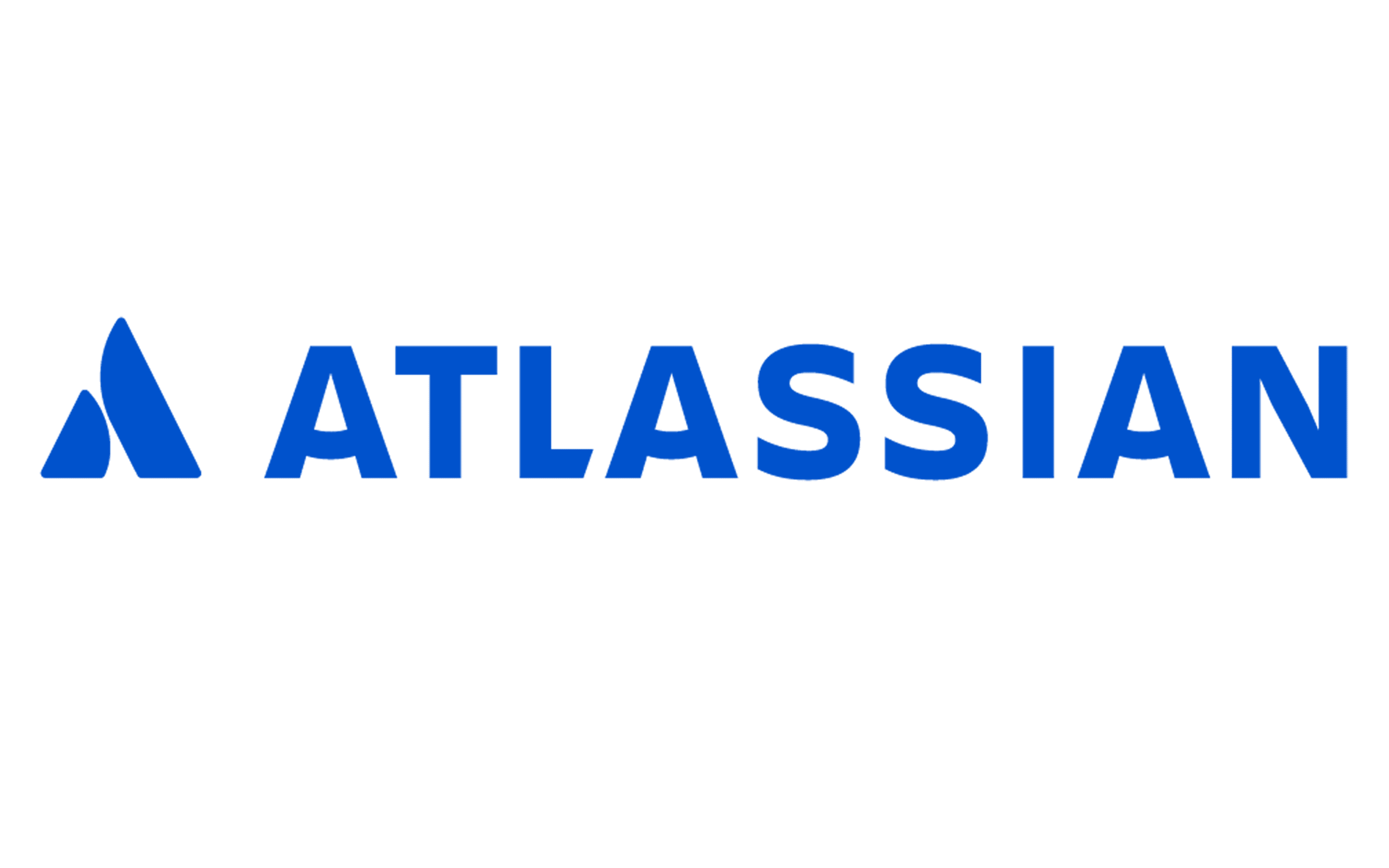
Atlassian offers a suite of products for project management, team collaboration, and software development, including Jira, Confluence, and Trello.
AppSumo

AppSumo is a deals platform that offers discounted lifetime access to various SaaS products, helping businesses discover and adopt new tools.
VH-Info
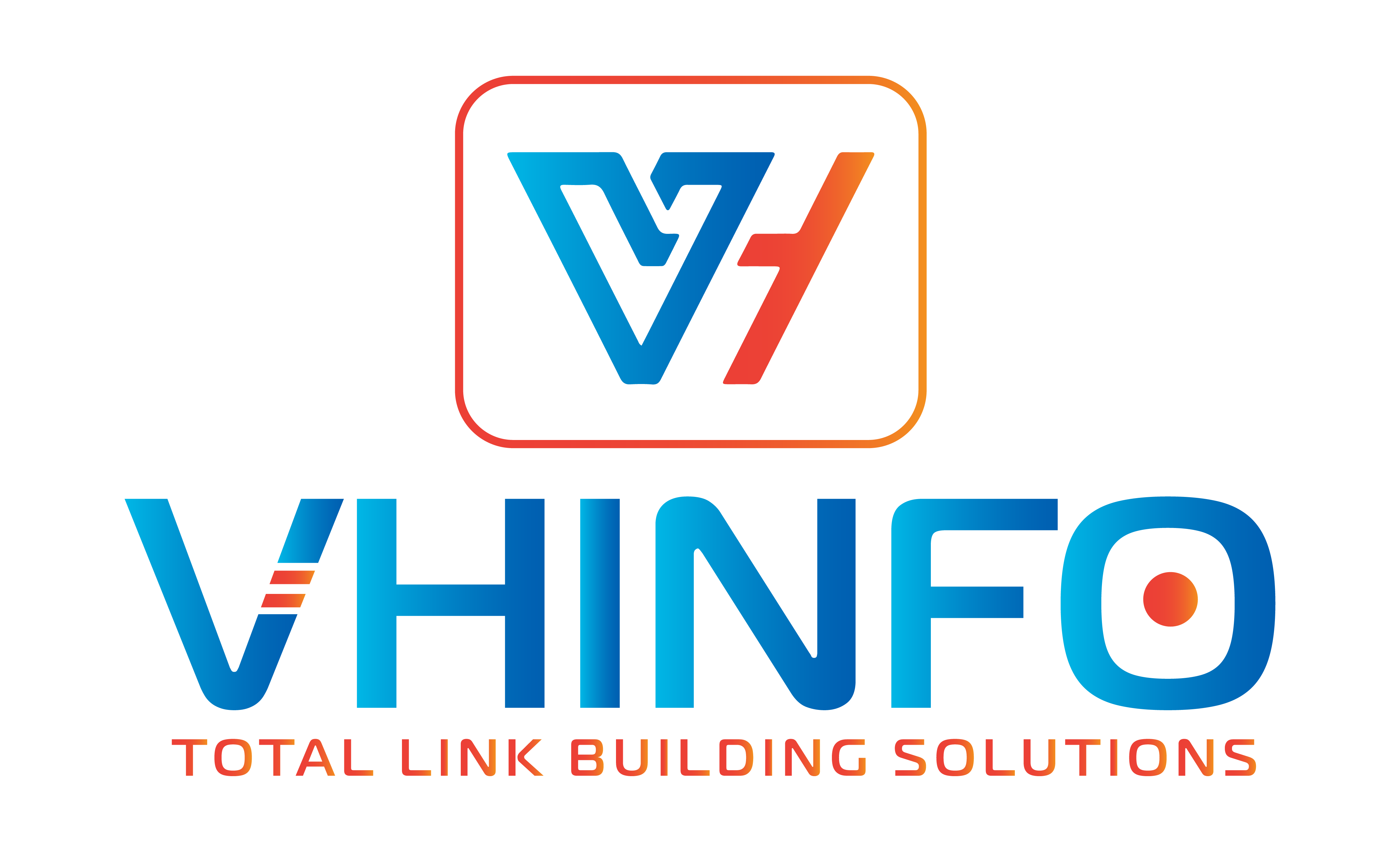
VH-Info is a leading provider of actionable insights and strategies for SaaS link building. Our expert guidance help businesses improve their search engine rankings and drive organic growth.
Salesforce

Salesforce is a comprehensive customer relationship management (CRM) platform that helps businesses manage their sales, marketing, and customer service processes.
Deel
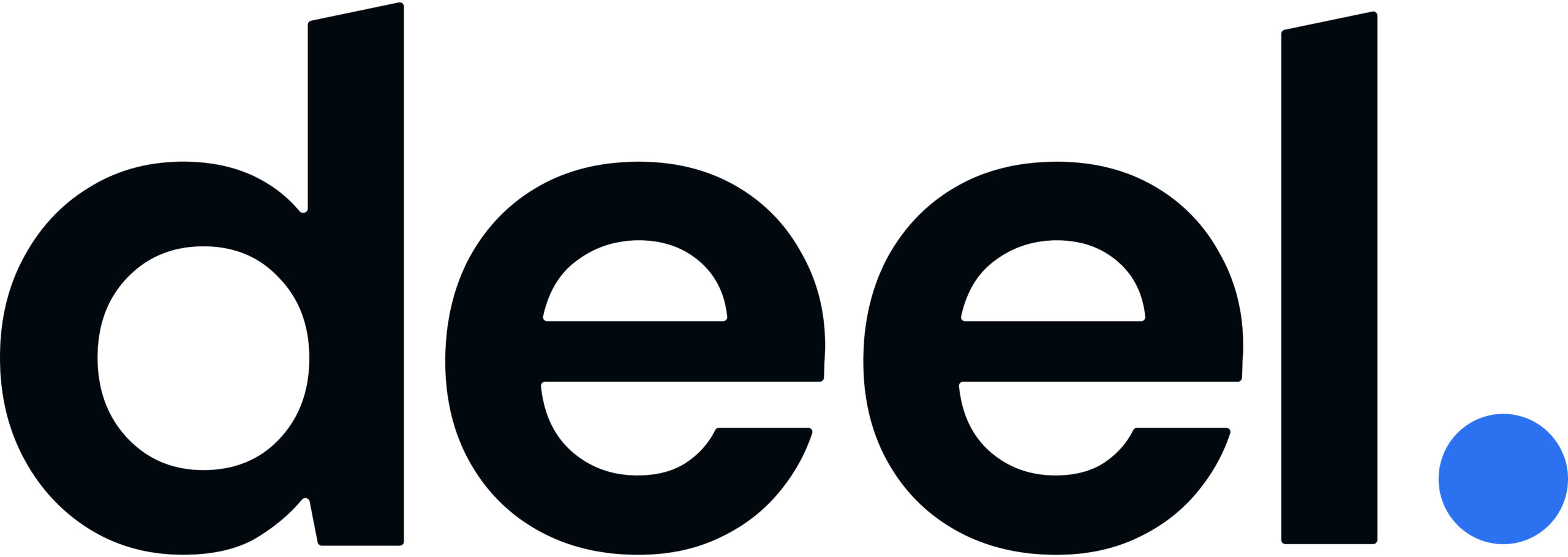
Deel is a user-friendly platform that helps businesses hire, pay, and manage remote teams worldwide. It automates payroll, contracts, and compliance, making it easy for companies to work with talent globally.
Shopify

Shopify is an e-commerce platform that enables businesses to create online stores, manage inventory, process payments, and handle shipping.
Adobe

Adobe offers a range of SaaS solutions for creative professionals, including Adobe Creative Cloud for design and video editing, and Adobe Experience Cloud for digital marketing.
Mailchimp

Mailchimp is an email marketing and automation platform that helps businesses create, send, and analyze email campaigns to engage their audience.
Ahrefs
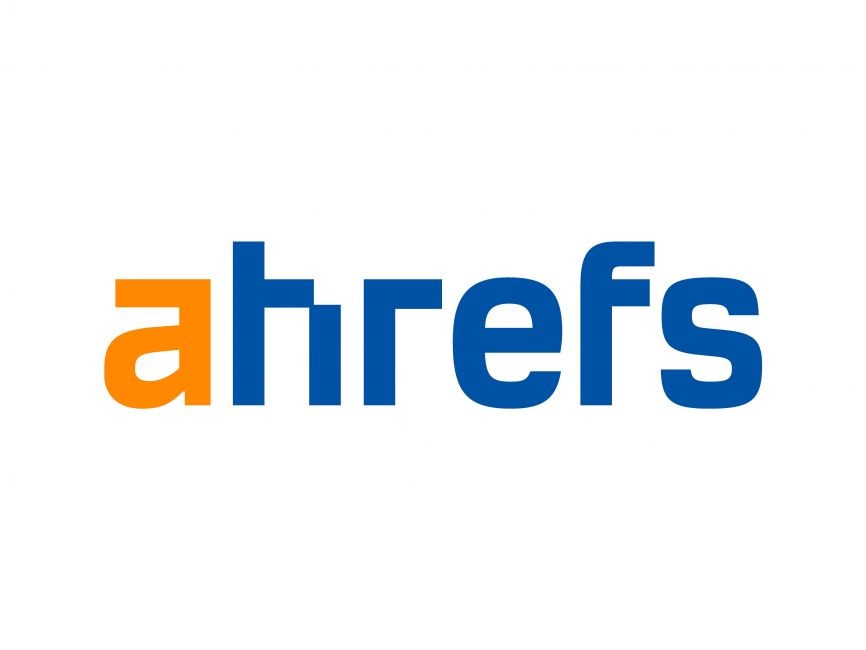
Ahrefs is an all-in-one SEO toolset that provides website analysis, keyword research, competitor analysis, and backlink monitoring.
Semrush

Semrush is a comprehensive digital marketing toolkit that offers solutions for SEO, PPC, content marketing, and social media marketing.
SurveyMonkey

SurveyMonkey is an online survey and questionnaire tool that enables businesses to gather insights and feedback from their customers and employees.
DocuSign
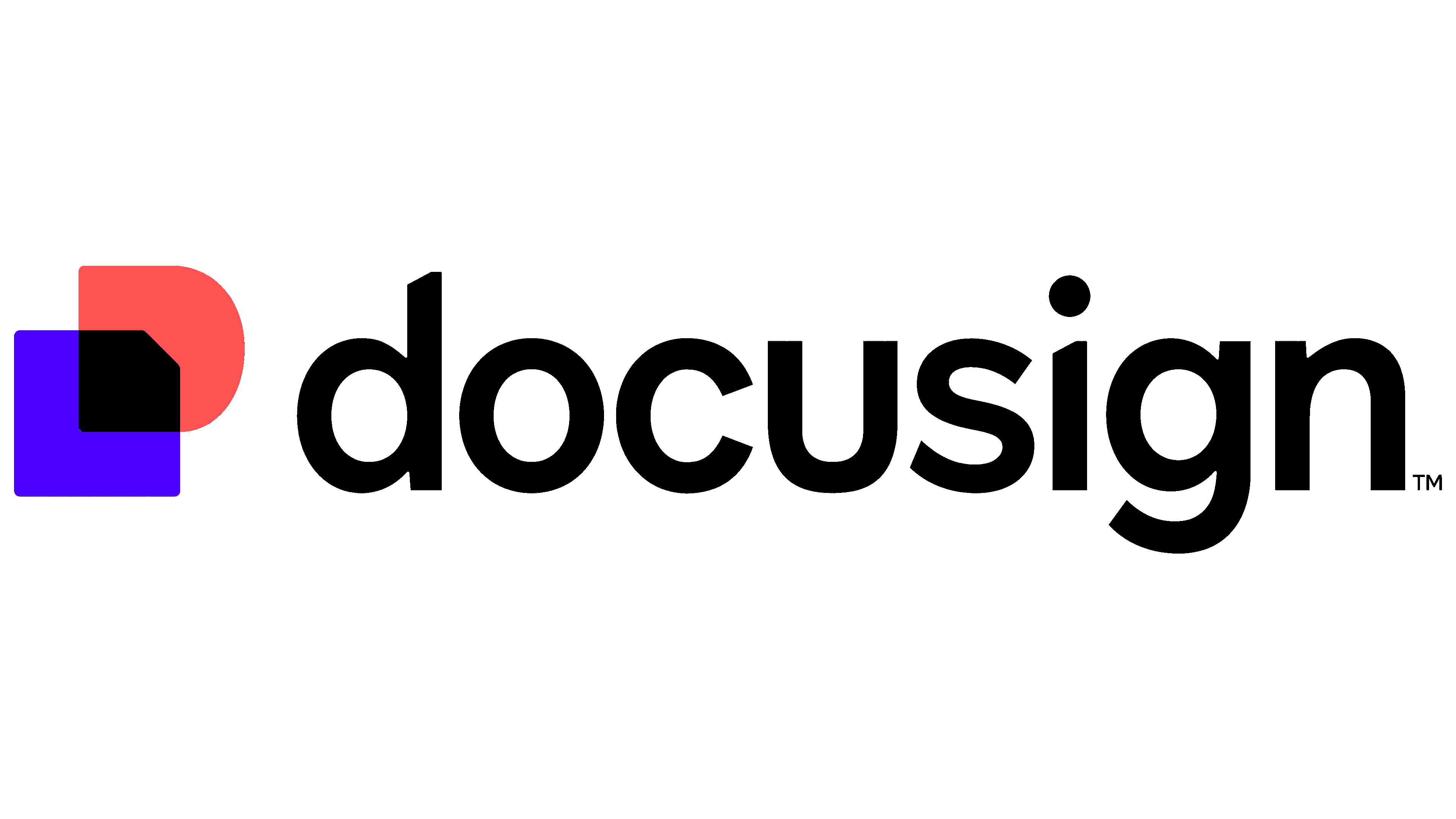
DocuSign is a digital signature and agreement cloud platform that allows businesses to securely sign, send, and manage documents electronically.
Dropbox

Dropbox is a cloud storage and file-sharing platform that helps businesses store, access, and collaborate on documents from anywhere.
Microsoft

Microsoft offers a range of B2B SaaS solutions, including Microsoft 365 for productivity, Microsoft Dynamics for business management, and Microsoft Azure for cloud computing.
Zendesk

Zendesk is a customer service and engagement platform that helps businesses manage customer interactions across various channels, such as email, chat, and social media.
Future Trends in B2B SaaS
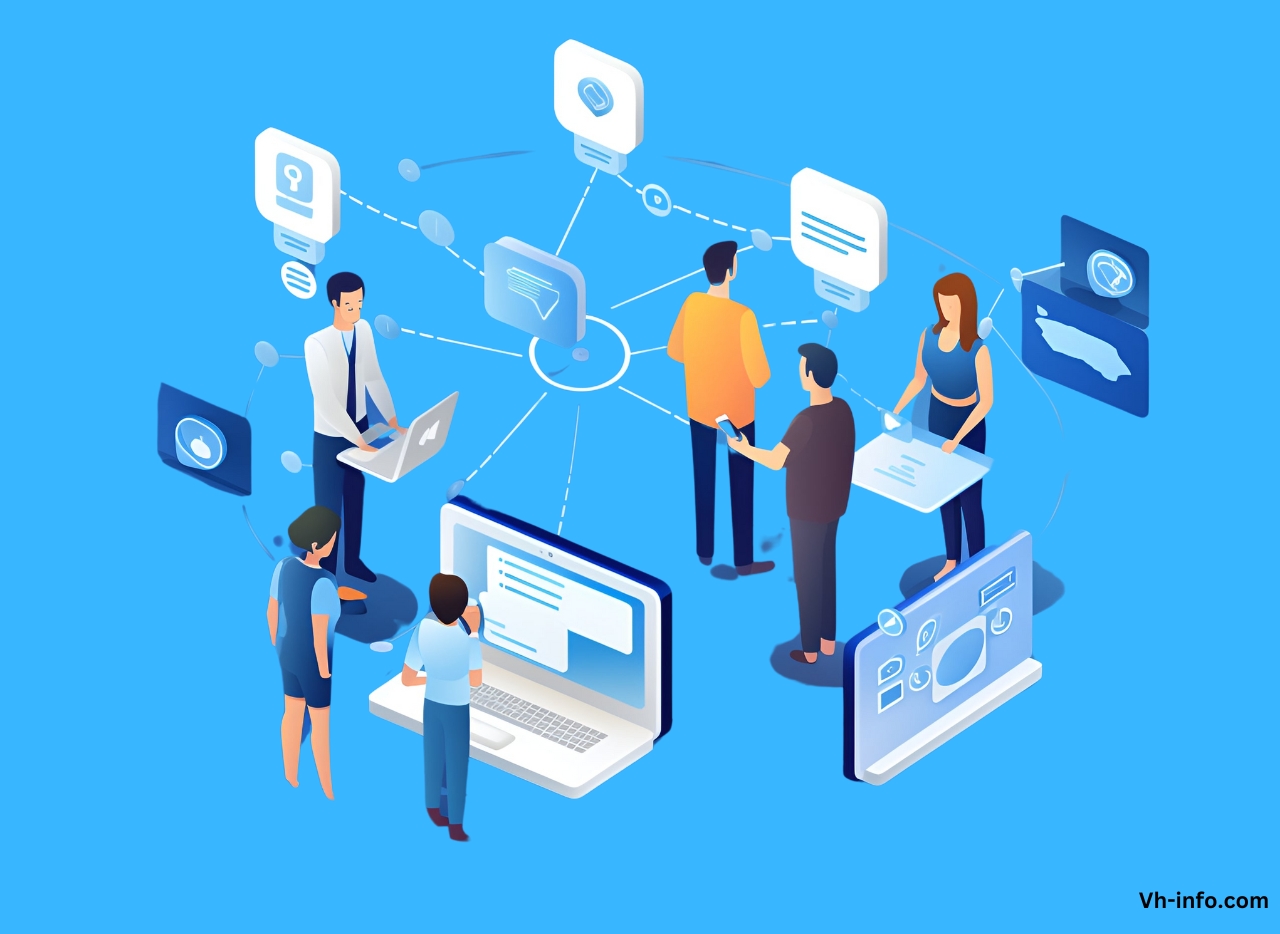
As the B2B SaaS market continues to evolve, several trends are shaping the future of the industry:
Increased Focus on Security
With the growing concern over data privacy and security, B2B SaaS companies are investing heavily in robust security measures to protect their customers’ sensitive information.
Integration of Artificial Intelligence (AI) & Machine Learning (ML)
AI and ML are becoming increasingly prevalent in B2B SaaS solutions, enabling businesses to automate processes, gain valuable insights from data, and personalize user experiences.
Expanded Partner Integrations
B2B SaaS companies are focusing on building extensive partner ecosystems, allowing seamless integrations with other SaaS products to provide customers with a more comprehensive and connected experience.
FAQ’s:
What Are the Key Features to Look For in a B2B SaaS Product?
When evaluating B2B SaaS products, look for features that align with your business needs, such as scalability, customization options, data security, user-friendly interface, and robust customer support.
How Do B2B SaaS Companies Generate Revenue?
B2B SaaS companies generate revenue through subscription-based pricing models, where customers pay a recurring fee to access the software. Additional revenue streams may include setup fees, premium features, and professional services.
How Much Does a Typical B2B SaaS Company Spend on Digital Marketing?
The digital marketing budget for B2B SaaS companies varies depending on factors such as company size, growth stage, and target market. On average, B2B SaaS companies allocate 10-20% of their annual recurring revenue (ARR) to marketing efforts.
Can Small Businesses Benefit From B2B SaaS?
Absolutely! B2B SaaS solutions are designed to cater to businesses of all sizes, including small businesses. The scalability and cost-effectiveness of SaaS products make them an attractive option for small businesses looking to streamline their operations and grow their customer base.
How Do B2B SaaS Companies Handle Data Security?
B2B SaaS companies prioritize data security by implementing strict security protocols, such as encryption, multi-factor authentication, and regular security audits. They also adhere to industry-specific compliance standards, such as GDPR, HIPAA, and SOC 2, to ensure the protection of customer data.
What Are the Best Practices For Implementing B2B SaaS Solutions?
When implementing B2B SaaS solutions, it’s essential to clearly define your business requirements, involve key stakeholders in the decision-making process, and provide adequate training and support for end-users. Regularly monitoring and measuring the performance of the SaaS product and making data-driven decisions for optimization are also important for success.
Conclusion
B2B SaaS companies are at the forefront of driving business transformation and growth in 2024.
By leveraging the power of cloud computing, automation, and data-driven insights, these companies are empowering businesses to streamline their processes, improve customer experiences, and gain a competitive edge.
As a trusted expert in the field, VH Info is committed to providing you with the knowledge necessary to navigate the B2B SaaS landscape successfully.
By staying informed about the latest trends, adopting best practices, and partnering with the right SaaS providers, your business can unlock new opportunities and achieve sustainable growth in the years to come.
